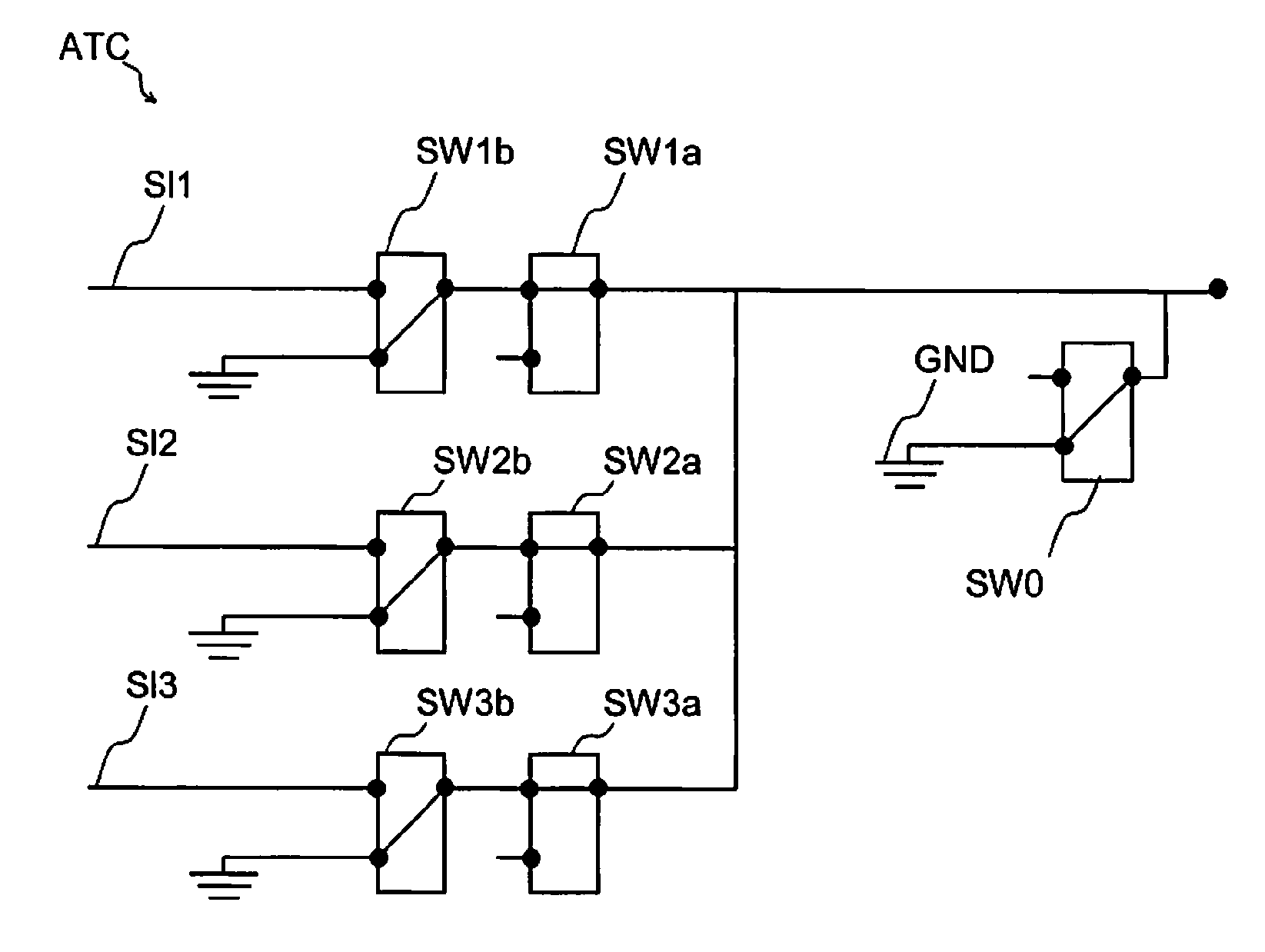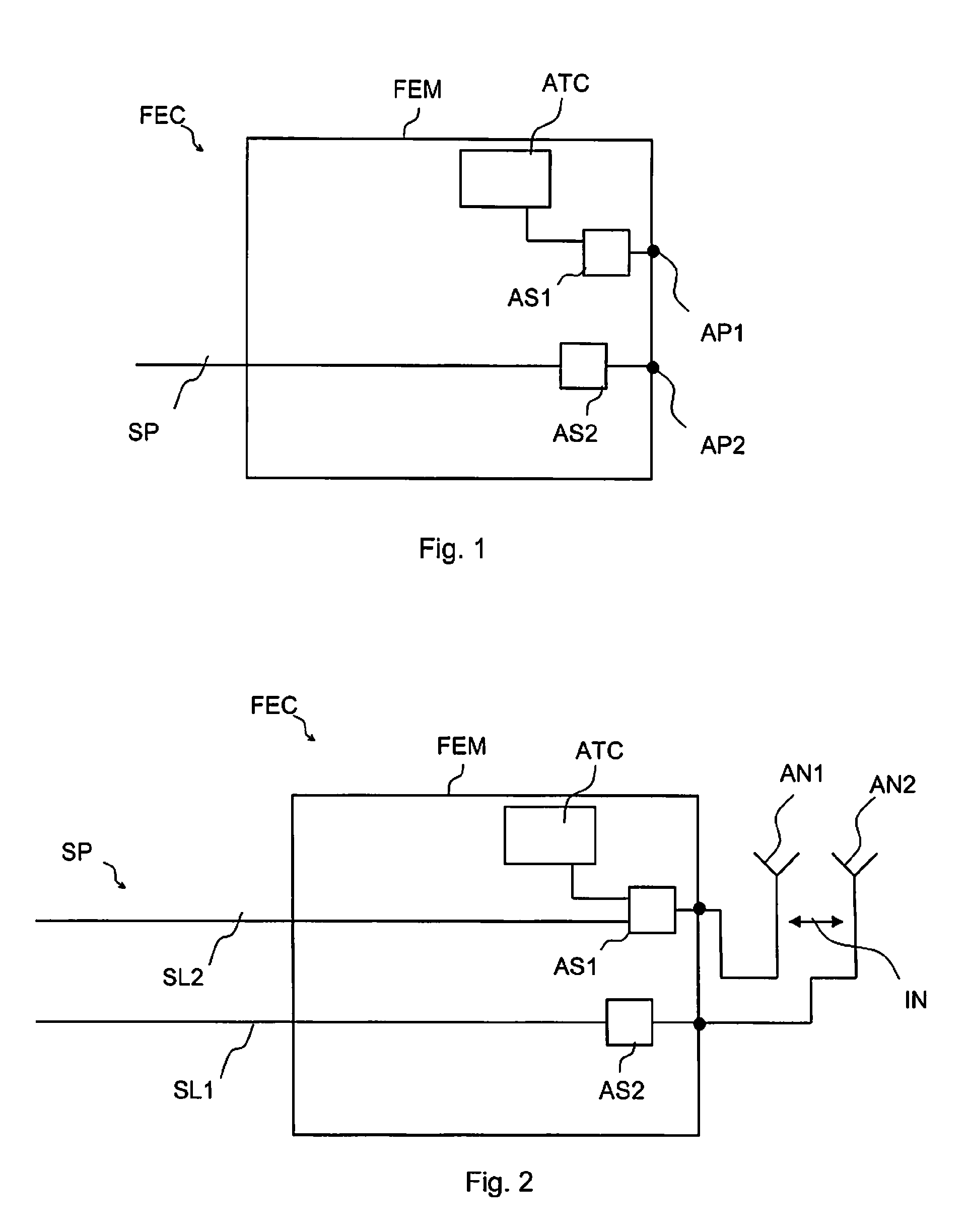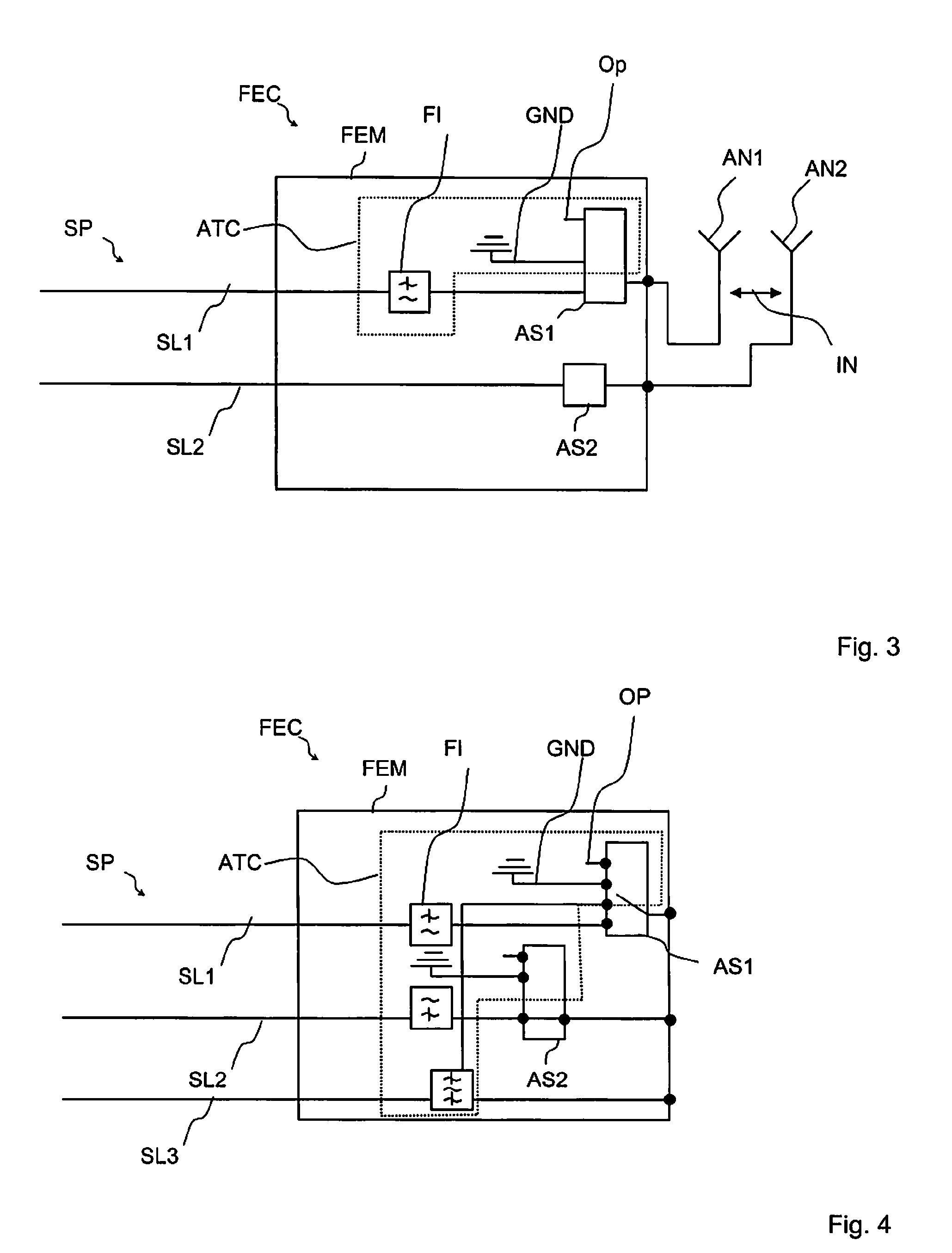Front-End Circuit for Improved Antenna Performance
a front-end circuit and antenna technology, applied in the direction of antenna details, independent non-interacting antenna combinations, antennas, etc., can solve the problem that the first antenna may not transmit or receive radio frequency signals, and achieve the effect of improving antenna performan
- Summary
- Abstract
- Description
- Claims
- Application Information
AI Technical Summary
Benefits of technology
Problems solved by technology
Method used
Image
Examples
Embodiment Construction
[0063]FIG. 1 illustrates circuitry according to an embodiment of the invention. A front-end circuit FEC is comprised within a front-end module FEM. The front-end circuit FEC comprises an antenna termination circuit ATC, a first antenna switch AS1 and a second antenna switch AS2. The first antenna switch AS1 electrically connects the antenna termination circuit ATC with a first antenna port AP1. The second antenna switch AS2 electrically connects a signal path SP with a second antenna port AP2.
[0064]The first antenna port AP1 may be connected with a first antenna and the second antenna port AP2 may be connected with a second antenna. When the second antenna is in use and receives or transmits radio frequency signals via the signal path SP, the first antenna is inactive and the first antenna switch AS1 electrically connects the first antenna with the antenna termination circuit ATC in order to reduce detrimental electromagnetic interaction between the first and the second antenna.
[006...
PUM
 Login to View More
Login to View More Abstract
Description
Claims
Application Information
 Login to View More
Login to View More - R&D
- Intellectual Property
- Life Sciences
- Materials
- Tech Scout
- Unparalleled Data Quality
- Higher Quality Content
- 60% Fewer Hallucinations
Browse by: Latest US Patents, China's latest patents, Technical Efficacy Thesaurus, Application Domain, Technology Topic, Popular Technical Reports.
© 2025 PatSnap. All rights reserved.Legal|Privacy policy|Modern Slavery Act Transparency Statement|Sitemap|About US| Contact US: help@patsnap.com



